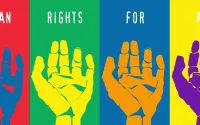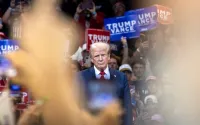18 January 2007The Independent
The White House has dashed hopes of a dramatic shift in climate change policy by George Bush, but says the President will lay out his strategy to combat global warming in next week's State of the Union address.
Tony Snow, Mr Bush's spokesman, denied that the administration was ready to accept fixed caps on carbon emissions by specified target dates.
"That's not something we're talking about," he said. Instead, the President is likely to emphasise the importance of scientific innovation, and call for greater use of alternative energy sources, in particular ethanol and hydrogen fuels, to reduce the country's "addiction to oil".
Pressure has been growing steadily on the administration, both at home and abroad. Tony Blair raised the issue during his visit to Washington in December, as did Angela Merkel, Chancellor of Germany, which has the presidency of both the EU and the G8 - whose summit agenda will focus on climate change when its leaders gather in the summer. The topic is also set to dominate next week's annual World Economic Forum in Davos, Switzerland.
In the US, several states, most notably California, have taken matters into their own hands, implicitly criticising Washington for its failure to act.
Barbara Boxer, a California Democrat and the new chairman of the Senate Environment Committee, is introducing a national bill that follows her state's example and seeks to reduce carbon emissions by 80 per cent by mid-century.
But the very proliferation of initiatives here is complicating efforts by Europe to draw Washington into a new global effort to combat global warming, even though its dangers are finally registering with a hitherto disdainful and sceptical administration.
"Basically, the US has to get its own house in order," said an EU diplomat involved in talks with the administration. It was also important, he added, not to raise US fears about a "son of Kyoto" - a pact with fixed targets that would replace the existing Kyoto agreement on its expiry in 2012.
These considerations too make it unlikely Mr Bush will have anything startling to say next Tuesday. "If they are doing something, then it's a very well-kept secret," the diplomat said.






